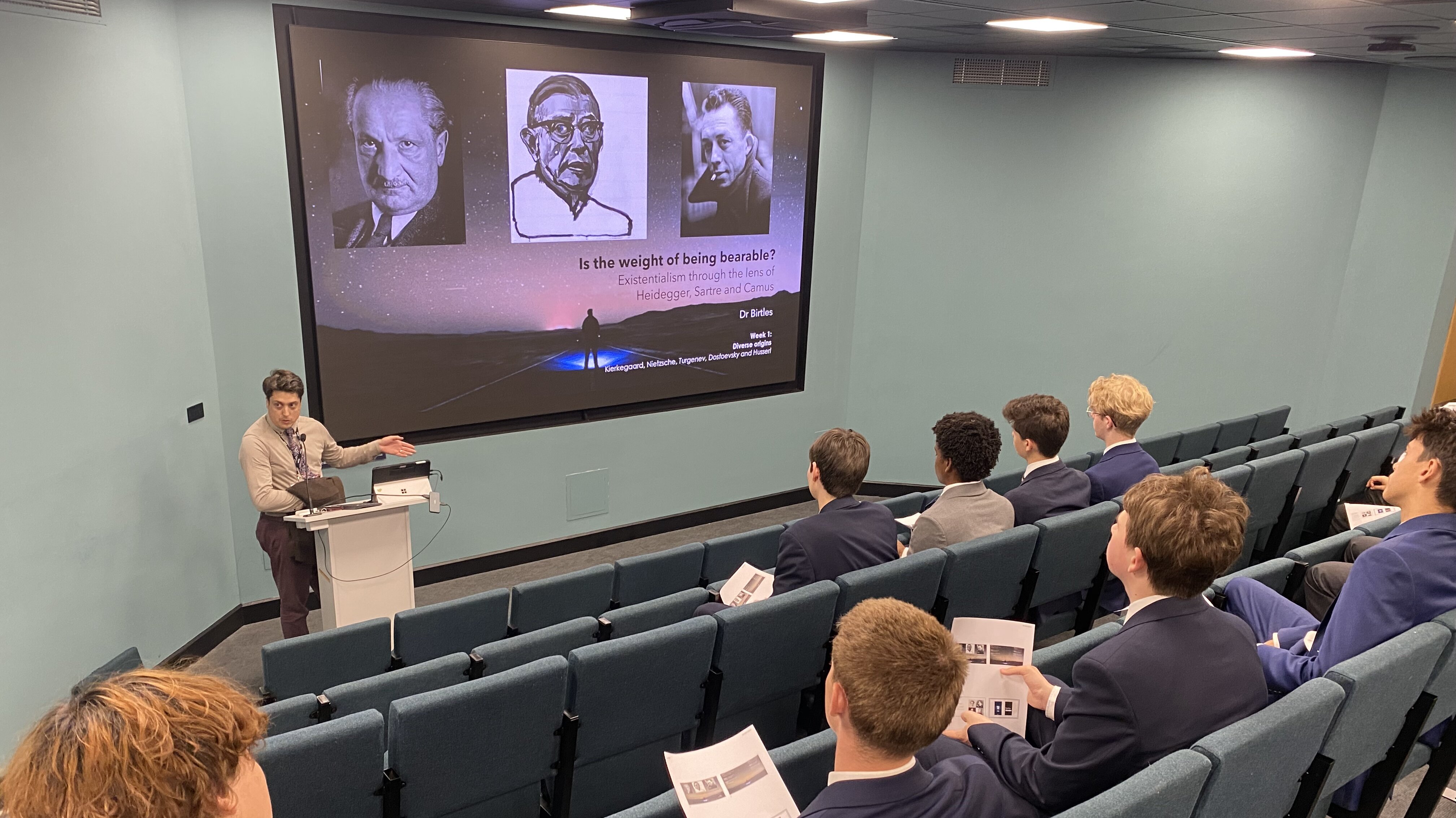The PhilSoc Lectures begin with, "What Is The Meaning Of Meaning?"

During the first six weeks of PhilSoc this academic year, Dr Birtles treated the society to the continuation of his lecture series. Following on from last year's lectures on the philosophies of Nietzsche and Schopenhauer, he presented a series of talks focusing on existentialism.
Writes Ollie C (U6th)
The series began with an examination of what existentialism is – a particularly challenging concept to define, hindered by the fact that few of the philosophers we associate with the movement used (or indeed liked) that term, if they were aware of it at all. The rough conclusion of this lecture was that existentialism is best defined as a philosophy that, at its heart, puts human existence before human essence.
During the second week, we touched on the philosophy of Heidegger, who identifies that for a proper phenomenological ontology (awareness and experience of being), we must start with "the being for whom being is an issue." In addition, he breaks down the traditional distinction between subjects and objects in favour of a more interconnected system, where objects are distinguished in relation to humans. Both ideas are built upon by later existentialists.
Over the two weeks following this, Dr. Birtles walked us through the basics of Sartre’s thought. I found Sartre’s account of what he describes as “Anguish” particularly interesting – a profound awareness and trepidation of our total freedom. We also looked at Sartre’s political philosophy and whether he could reconcile his ideas of total human freedom with his support of Marxism.
In the final two weeks of the series, we examined the twin works of Camus – The Stranger and The Myth of Sisyphus. The former provides a narrative account of what Camus describes as the ‘absurd’ – the tension between rational beings and a fundamentally irrational universe. The latter aims to provide a more philosophical account of this. Camus, as well as borrowing mythology from the ancient Greeks, also borrowed their questions. At the heart of his texts, he examines what it means to live a good life. He also incorporated themes from many other philosophers, including Sartre’s work on freedom and Nietzsche’s thought about eternal return and finding motivation in meaninglessness.
Overall, this was another brilliant lecture series, exploring themes and philosophers that are not often mentioned (if at all) in the A-level philosophy specification. It was a fantastic opportunity, enjoyed by all those who attended, to really stretch our philosophical thinking, as well as providing us a flavour of what university lectures are like. Thank you, Dr. Birtles.